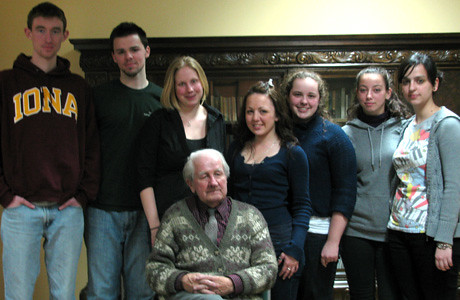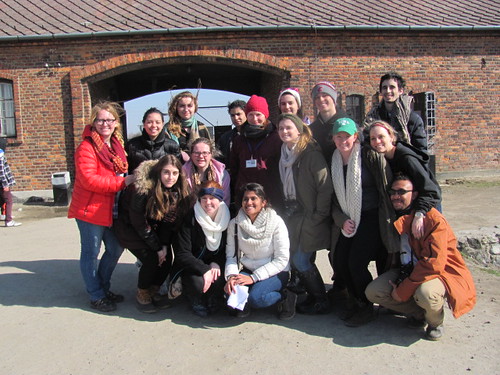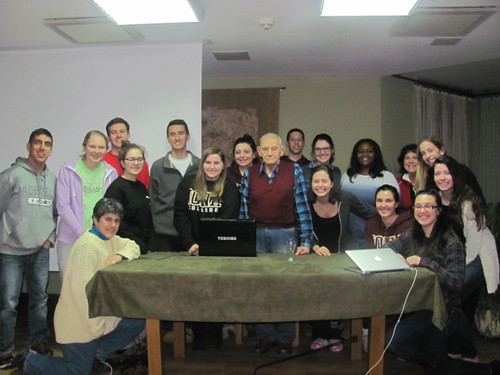 |
| Entrance sign in front of Plaszów |
On our last exploratory day in Poland, we had the
opportunity to go on a walking tour through Kraków and visit the Plaszów
Concentration Camp. After seeing Auschwitz I and Auschwitz II, I was slightly
unimpressed by the preservation of Plaszów. This sight is marked with a few
select signs marking the entrance to Plaszów and different historic locations.
The camp is located off of “Abraham” and “Jerusalem” street and what once used
to be a place of brutality was now a normal neighborhood.
The ground was dry and arid and appeared to be a simple
walking trail. When we asked our tour guide about the topography of the camp
she mentioned that in one point in time Plaszów was more built up, but for only
a short period of time before the Nazis were forced to destroy their own
structures before the end of the way. The area before the camp served as the
local park and today, the transformation of concentration camp back to a park
is complete. However, you can still see indentations in the walking path that
exhibit the place where the Nazi soldiers used to place Jewish tombstones a
form of cobblestone. Placing grave markers face down into the dirt is
disrespectful to the culture. Since then, the tombstones have been removed and
were made into a memorial wall in a nearby cemetery. Still, while we were
walking around there were bikers and people casually strolling on this same
path.
 |
| Memorial in the area of Plaszów |
The main difference between the beginning of the park’s
formation before the war and the park now is the presence of markers that serve as memorials. The memory of the events that occurred on
this land is sustained only through specific monuments. The first monument is a
cross that was erected in honor of the victims who died here. It is removed
from the main path of the nature preserve but can still be seen from the
walkway. We did not have the time to approach the memorial very closely, but
the placement of the cross in amidst of Jewish suffering was meaningful to me.
This showed me that there is hope for even further betterment of
Jewish-Christian relationships and that, at least while that monument stands,
the events of Plasków will not be forgotten.
The townspeople and people of neighboring towns continue to
preserve this memory in a more active manner. Each year in a March of Memory is
held walking people from the center of town to one of the memorial sites in the
camp. This past year, these events took place on March 13th, and the
walk culminates with the placing of stones on the Jewish memorial that displays
the remembrance of “horrible bestiality, ruthlessness, and pain” caused by
“Hitlerism”. This memorial also states that “the last cry of despair is the
quiet of this cemetery” showing that even as the Jewish people have preserved
through this time of suffering, there is still a reason to not forget these
events so that genocide will cease and the Shoah will never happen again.












































